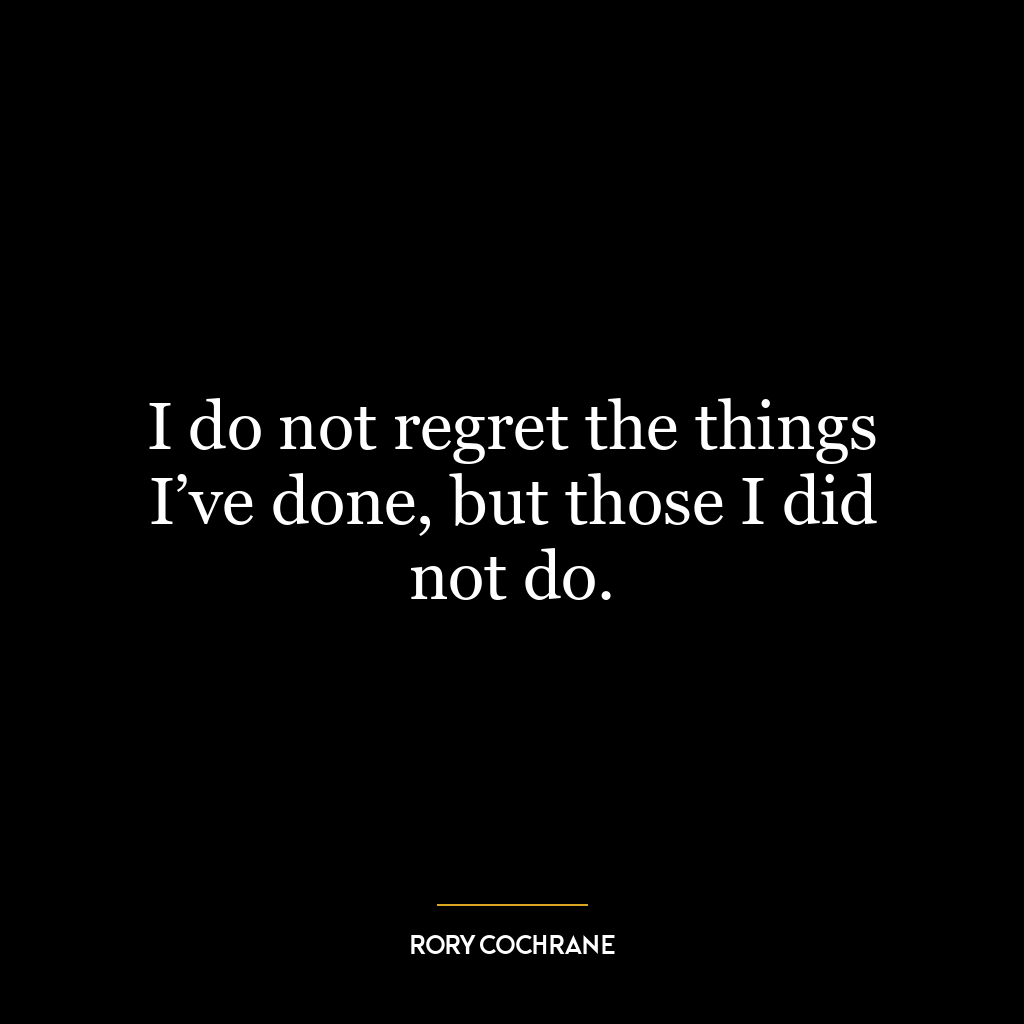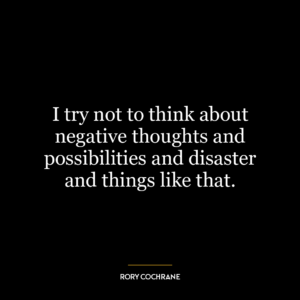I do not regret the things I’ve done, but those I did not do.
This quote suggests that regret is often tied not to our actions, but to our inactions. It implies that the opportunities we miss, the chances we don’t take, or the risks we avoid are the things that we ultimately regret the most. It’s not about making mistakes, but about missing out on potential growth, learning, and experiences. This perspective encourages us to step out of our comfort zones, to take risks, and to live life to the fullest.
In the context of personal development, this quote can be a powerful motivator. It encourages us to seize opportunities for growth and learning, even if they seem daunting or risky. It suggests that it’s better to try and fail than to not try at all. This perspective can encourage us to take on new challenges, to push our boundaries, and to constantly strive for self-improvement.
In today’s world, this idea is more relevant than ever. With the rapid pace of technological and societal change, there are countless opportunities for learning and growth. But these opportunities often require us to take risks, to step out of our comfort zones, and to face potential failure. This quote suggests that we should embrace these challenges, rather than avoiding them out of fear or uncertainty. It encourages us to live life proactively, rather than passively, and to seize the opportunities that come our way.
In a broader societal context, this quote can also be a call to action. It suggests that we should not only seize opportunities for personal growth, but also for societal improvement. It encourages us to take action to address social issues, to contribute to our communities, and to strive for a better world. It suggests that the greatest regret comes not from trying and failing, but from not trying at all.




